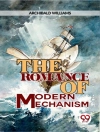‘Design Engineering for Industry 4.0 (DE4.0) represents the ‘human-cyber-physical view of the systems realization ecosystem “that is necessary to accommodate the drivers of Industry 4.0 (Io X) and provide an open ecosystem for the realization of complex systems. Seamless integration of digital threads and digital twins throughout the product design, the development and fulfillment lifecycle; the ability to accommodate diverse and rapidly changing technologies; and the mechanisms to facilitate the creation of new opportunities for the design of products, processes, services, and systems are some of the desired characteristics of DE4.0.’
Jiao, R., Commuri, S. Panchal, J., Milisavljevic-Syed, J, Allen, J.K., Mistree, F. and Schaefer, D., ‘Design Engineering in the Age of Industry 4.0, ‘ ASME Journal of Mechanical Design, 143(7), 070801, 25 pages.
In keeping with the Design Engineering 4.0 construct the authors describe architecting a computer platform to support human designers make decisions associated with the realization of complex engineered systems. The platform is designed to facilitate end-to-end digital integration, customization and personalization, agile collaboration networks, open innovation, co-creation and crowdsourcing, product servitization and anything-as-a-service.
Recognizing that simulation models are abstractions of reality the authors opt for a satisficing strategy instead of an optimization strategy. They include fundamentals and then describe tools for architecting a knowledge-based platforms for decision support. Challenges associated with developing a computational platform for decision support for the realization of complex engineered systems in the context of Design Engineering 4.0 are identified. Constructs for formulating design decisions (e.g., selection, compromise, and coupled decisions), knowledge modelling schemes (e.g., ontologies and modular templates), diagrams for designing decision workflows (e.g., the PEI-X diagram), and some analytical methods for robust design under uncertainty are presented. The authors describe integrating the knowledge-based platform to architect a cloud-based platform for decision support promoting co-design and cloud-based design communication essential for mass collaboration and open innovation for Design Engineering 4.0.
This book is a valuable resource for researchers, design engineers, and others working on pushing the boundary of digitized manufacturing to include Design Engineering 4.0 principles in designing products, processes, and services.
Tabela de Conteúdo
Frame of Reference.- Foundations for Design Decision Support in Model Based Realization of Complex Engineered Systems.- Ontology for Decision Support Problems Templates.- Ontology for Designing Decision Workflows.- PDSIDES: A Knowledge-Based Platform for Decision Support in the Design of Engineering Systems.- Design of a Hot Rod Rolling System Using PDSIDES.- Conclduing Remarks.
Sobre o autor
Zhenjun Ming is an Assistant Professor of the School of Mechanical Engineering at Beijing Institute of Technology (BIT). He received his Ph D in Mechanical Engineering and his Bachelor’s degree in Industrial Engineering, both from BIT. Zhenjun Ming’s research interests include knowledge- -based systems, decision making in engineering design, collective intelligence and self-organizing systems. He devotes himself to merging Information Technology (IT) and Operation Technology (OT) to deliver useful, effective, and efficient tools and approaches for supporting human decisions in the design of cyber-physical-social systems. He is a winner of the ‘2015 NSF/ASME Student Design Essay Award’. He has spent 20 months working with Professors Farrokh Mistree and Janet K. Allen as a visiting scholar at the University of Oklahoma (Norman), on a China Scholarship Council (CSC) sponsored project – Knowledge-Based Platform for Decision Support in the Design of Engineering Systems. He has publishedone monograph, ten journal papers and eight conference papers.
Anand Balu Nellippallil is an Assistant Professor in the Department of Mechanical and Civil Engineering at Florida Institute of Technology (FIT). Anand directs the Systems Realization Laboratory at FIT. He received his Ph.D. in Mechanical Engineering from the University of Oklahoma (OU) in 2018. Anand received his M. Tech degree in Materials Science and Engineering from the Indian Institute of Technology, Bhubaneswar, India in 2014, and his B.Tech degree in Production Engineering from the Government Engineering College Thrissur, University of Calicut, India in 2012. Before joining Florida Tech, he worked as a Research Engineer II at the Center for Advanced Vehicular Systems (CAVS) in Mississippi State University. His current research interests are focused on the realization of evolving human-cyber-physical-manufacturing-social systems. Anand has received several scholarships and awards, namely, the2018 Provost’s Dissertation Prize for outstanding dissertation in science and engineering at OU, the Gallogly College of Engineering Dissertation Excellence Award, the Frank Chuck Mechanical Engineering Scholarships (2016 and 2017), Paper of Distinction at the ASME Design Automation Conference, a silver medal from the Indian Institute of Technology (IIT), Bhubaneswar for best academic performance and a university first rank medal from the University of Calicut. Anand has co-authored one other research monograph anchored in his Ph D dissertation titled: Architecting Robust Co-Design of Materials, Products, and Manufacturing Processes. Anand is a member of ASME.
Ru Wang is an Assistant Professor of the School of Mechanical Engineering at Beijing Institute of Technology (BIT). He received his Ph.D. in Mechanical Engineering in June 2018 from BIT and got his B.E. and M.E. degree in Traffic Engineering and Vehicle Operation Engineering in 2011 and 2014 from Shandong Universityof Technology. Since December 2016 to November 2017, Ru joined the Systems Realization Laboratory at the University of Oklahoma (Norman) as a Visiting Scholar for one year and conducted a Joint Ph D Program supported by BIT. He is an ASME member and the winner of the ‘2017 NSF/ASME Student Design Essay Award’. His research interests include the management of complexity and uncertainty in decision-based design, intelligent design and knowledge engineering. He has co-authored sixteen journal papers, and five conference papers.
Janet K. Allen holds the John and Mary Moore Chair of Engineering at the University of Oklahoma, Norman. She received her SB from the Massachusetts Institute of Technology and her Ph D form the University of California, Berkeley. Her research focus is on managing the uncertainty which is inherent in simulation-based design. Her group was among the first to recognize that there are four types of uncertainty inherent in simulation-based design andto suggest that this uncertainty could be managed with robust design. Janet Allen and her research group have co-authored one textbook and three monographs and more than 300 technical articles. She is a member of several academic and professional organizations, and is a Fellow of the American Society of Mechanical Engineers, a Senior Member of the American Institute of Aeronautics and Astronautics and is an Honorary Member of the Mechanical Engineering Honor Society Pi Tau Sigma. Professor Allen co-directs the Systems Realization Laboratory @ OU with Professor Farrokh Mistree.
Guoxin Wang is a Professor of School of Mechanical Engineering at Beijing Institute of Technology (BIT). He is a Senior Member of the Chinese Society of Mechanical Engineers. Professor Wang directs and has accomplished 30 projects from the National Nature Science Foundation of China, the National High-Tech. R&D Program, and the National and International Enterprise Research Foundation. He has published over 80 papers and two books. His research interests include knowledge-based engineering, model-based system engineering and reconfigurable manufacturing systems.
Yan Yan is a Professor of the School of Mechanical Engineering at Beijing Institute of Technology (BIT). She is also the Dean of the Department of Human Resource at BIT. Professor Yan received her Bachelor’s degree in 1989 and her Ph D in 2001, both of them are in Mechanical Engineering at BIT. Her research interests include digital platform for design and manufacturing, knowledge-based engineering, decision-based design, and artificial intelligence in design and manufacturing. She has accomplished tens of projects funded by the Chinese NSF, Beijing NSF, and Chinese Key R&D Programs. Professor Yan has received seven National Science and Technology Advance Awards, one National Teaching Award. She has been granted more than ten patents in China, published three textbooks and two monographs (in Chinese), published more than eighty journal papers (in Chinese and English). She is a member of the Teaching Steering Committee of Industrial Engineering Specialty of China Ministry of Education, a member of the Chinese Society of Mechanical Engineers, an expert of Advance Design and Manufacturing in the Chinese Key R&D Programs.
Professor Farrokh Mistree holds the L. A. Comp Chair in the School of Aerospace and Mechanical Engineering at the University of Oklahoma in Norman, Oklahoma. He received his B. Tech (Hons) degree in Naval Architecture in 1967 from the Indian Institute of Technology, Kharagpur and his Ph.D. in Engineering from the University of California, Berkeley in 1974. He has co-authored two textbooks, four monographs and more than 400 technical papers. His current research focus is on collaboratively defining the emerging frontier for the “intelligent” evolving cyber-physical-social systems when the computational models are incomplete and inaccurate. He is a Fellow of ASME, an Associate Fellow of AIAA, a Life Member of The Honor Society of Phi Kappa Phi and a Member of ASEE, RINA and SNAME. Professor Mistree co-directs the Systems Realization Laboratory @ OU with Professor Janet K. Allen in Industrial and Systems Engineering.












